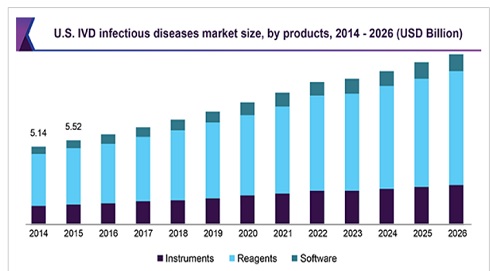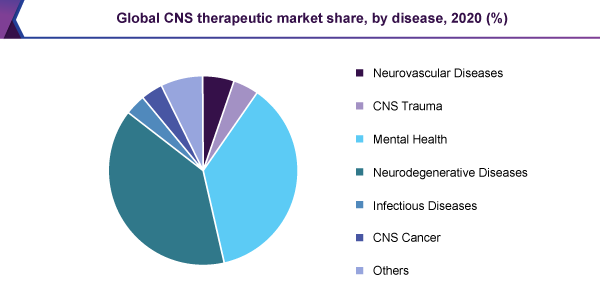Sessions & Tracks
Session-1: Infectious Disease Pathology
Plant pathology (likewise phytopathology) is the logical investigation of sicknesses in plants caused by pathogens (irresistible creatures) and ecological conditions (physiological factors).Organisms that reason irresistible malady incorporate growths, oomycetes, microorganisms, infections, viroids, infection like life forms, phytoplasmas, protozoa, nematodes and parasitic plants. Excluded are ectoparasites like bugs, vertebrate, or different nuisances that influence plant wellbeing by utilization of plant tissues. Plant pathology additionally includes the investigation of pathogen recognizable proof, sickness etiology, ailment cycles, monetary effect, plant malady the study of disease transmission, plant ailment protection.
Session-2: Infection Treatment and Control
Contamination counteractive action and control is required to keep the transmission of Infectious Ailments in all social insurance frameworks. These maladies are typically caused by microscopic organisms or infections and can be spread by human to human contact, creature to human contact, human contact with a contaminated surface, airborne transmission through little beads of irresistible operators suspended noticeable all around lastly, by such regular vehicles as water or sustenance. Infection control and Counteractive action requests a fundamental comprehension of the study of disease transmission of maladies, chance factors that expansion quiet defencelessness to contamination, and the practices, methodology and medicines that may bring about diseases. Late systems have demonstrated that there is no illness that can't be dealt with.
Session-3: Emerging Infectious Diseases
An Infectious malady whose event has expanded in the previous years or a reason to increment is named as developing. These maladies incorporate new diseases, beforehand unrecognized contaminations and old contaminations returning because of antimicrobial protection, general medical problems and unhygienic conditions. Human irresistible specialists develop and seem assignable to connection of different propelled factors between the host and pathogen each determined by the prerequisite to secure the achievement of the species in dynamical situations. Adjustment by one accomplice to exploit new situations can commonly animate the inverse to change its highlights to require favourable position of the change. Methicillin-ResistantStaphylococcus aureus, Atomic Epidemiology, New or Rapid Diagnostics, Testing/Quality Assurance, Host and Microbial Genetics, Antibody Preventable Diseases, New Vaccines.
Session-4: Influenza and Diagnostic Approaches
Early diagnosis of influenza viral infections are critical for rapid initiation of antiviral therapy to reduce influenza related morbidity and mortality both during seasonal epidemics and pandemics. Several different approaches are currently available for diagnosis of influenza infections in humans. These include viral isolation in cell culture, immunofluorescence assays, nucleic acid amplification tests, immune chromatography-based rapid diagnostic tests, etc. Newer diagnostic approaches are being developed to overcome the limitations associated with some of the conventional detection methods. The rapid flu swab test is a relatively fast and accurate method for diagnosing influenza.
Session-5: Vaccine Research & Development
Vaccine Development is an activity that focuses on a variety of technological initiatives and applied research, which enhance and promote improved systems and practices for vaccine safety. In the past year, the unprecedented Ebola disease outbreak galvanized research and industry response and as we continue to search for solutions, we must review the lessons learned in order to overcome the current challenges. Vaccines development is a long, complex process, often lasting 10-15 years and involving a combination of public and private involvement. The current system for developing, testing, and regulating vaccines developed during the 20th century as the groups involved standardized their procedures and regulations.
Session-6: Veterinary Infection Control
Infectious diseases of animals are a major hazard to earthly animal health and welfare and their effective control is necessary for agronomic health, for defending and procuring national and international food supplies and for mitigating rural poverty in developing countries. Some catastrophic livestock diseases are regional in many parts of the world and threats from old and new pathogens continue to rise, with changes to worldwide climate, agricultural approaches and anthropology presenting conditions that are especially supportive for the spread of arthropod-borne diseases into new geographical fields. Zoonotic or phonetic infections that are transmissible either directly or indirectly between animals and humans are on the increase and pose serious additional risks to human health and the recent pandemic status of new influenza A (H1N1) is a topical illustration of the challenge presented by zoonotic viruses. Veterinary scientists often collaborate with Epidemiologists.
Session-7: HIV Prevention, Treatment and Cure
HIV/AIDS still remains one of the most critical health challenges in the face of the world. According to reports around 36.7 million people are living with HIV and an estimated 1.8 million new infections are recorded in year 2016. There are some certain ways through which HIV can spread from one person to another such as blood, semen, pre-seminal fluids, rectal fluids, vaginal fluids and breast milk. HIV transmission is only possible if these fluids come in contact with the mucous membrane or damaged tissue or are directly injected into the bloodstream. HIV can also transmit from a mother to her child during the time of pregnancy, childbirth or breastfeeding. Earlier, there were some cases of HIV transmission during organ or tissue transplant from a HIV infected person. HIV treatment involves taking medicines that are called antiretrovirals also known as ARV. These are always given in combination with other antiretrovirals. The therapy involved is called antiretroviral therapy also named as ART. Using ART drugs has significantly reduced the number of deaths related to AIDS.
Session-8: Nosocomial Infections & Control
These infections are acquired due to development of favourable conditions in hospital environment, infected by a patient during a hospital visit or one developing among hospital staff. The types of microorganisms cause nosocomial infections contribute about 99,000 deaths each year according to Centers for Disease Control and Prevention. Recent survey by hospitals reports, Gram-negative infections are estimated to account for two-thirds of the 25,000 deaths each year. Urinary tract infections, pneumonia, bloodstream, and other parts of the body are comes under these category. Most of the infections are difficult to attack with antibiotics, and Gram-negative bacteria resistant to antibiotic can infect people outside the hospital. The prevention and control of nosocomial infections sets new goals for the epidemiologists and infection control practitioners beyond the basics.
Session-9: Pediatric Infectious Diseases
Pediatrics is the field of medicine that is concerned about the well-being of neonatal, children, and adults. It also concerns on their development and advancement and their chance to accomplish maximum capacity as grown-ups. The Pediatric academy of America, prescribes that the children should be under pediatric care, up to the age of 21. The point of investigation of pediatrics is to decline the death rate of children and newborns, to control the spread of infectious diseases, for a long ailment free life. Infectious diseases, which annually claim about 14 million lives i.e. 25% of the more or less 56 million deaths recorded worldwide. The recent trends of pediatrics have achieved exceptional advances in reductions in childhood mortality. The global challenge of preventing HBV in children has shown that the deadliest infectious diseases can be prevented by acquiring proper awareness.
Session-10: Disinfection and Sterilization
Disinfection and Sterilization are the most common decontamination process, where the disinfection is used to eliminate or reduces the harmful pathogens from the objects or surfaces, and sterilization is process of killing the microbes, spores and harmful pathogens. Disinfectant types includes, air disinfectants, alcohols, aldehydes, oxidizing agents, and phenolic are used to decontaminate the surfaces and, sterilizations types includes steam, heat, chemical sterilization, radiation sterilization, and sterile filtration are used for food, medicine and surgical instruments. Most of adherence to strict recommendation of these methods can reduce the infections associated with contaminated items of patients or food processing.
Session-11: Nursing Infection Control
Contamination control nurture is a medical caretaker that spends significant time in keeping the spread of irresistible specialists, for example, infections and microscopic organisms. As contamination control nurture, you will take part in counteracting risky flare-ups and pestilences. Contamination control medical attendants ought to show a great tender loving care and powerful relational abilities. They will frequently need to perform obligations, for example, showing others how to avert and contain episodes and plagues and also work with government organizations to contain these occurrences. The essential obligation of contamination control medical attendants is to keep the spread of irresistible operators. To do this, these attendants will frequently need to teach other therapeutic experts and regular citizens on contamination aversion procedures. This may incorporate advising others about how certain irresistible specialist spread, alongside how to shield themselves as well as other people from defilement.
Session-12: Risk Factors & Prevention
The patient risk factors depend on the direct relationship between the age and susceptibility towards infections. Mostly these factors can be seen due to impaired immune function, anatomic, functional changes, and amount of exposure towards infection results in the elder patients reduces the quality of life during the infection and conditions are fatal. The range of serious risk factors commonly seen in elder patients with respiratory infections, hospital acquired infections or nosocomial infections, also the other factors particular cited in the patients with urinary tract infections, hepatitis and salmonellosis.
Session-13: Infection Control Bacteriology
Bacteriology and Infectious Diseases rely upon examination of Bacterial Ecology, Bacterial Infection, Pathogenic Bacteria, Bacterial toxins, Bacterial genomics, Salmonella, Bacterial Diseases, immunology, bacteriology, mycology, virology, parasitology, Parasitic Worms, Anthrax, Biological weapons, Leprosy, pathology, and pathophysiology of the causative specialists of infectious diseases. It likewise serve to give bits of knowledge into until now unexplored domains of clinical microbiology and infectious diseases, for example, improvement of multi-medicate protection (MDR), advancement of novel antibodies and anti-toxins to neutralize the impacts of MDR, variety of contamination and illness dissemination mapping. It also provides novel discoveries on the ecology, biochemistry and genetics of pathogenic bacteria, viruses, fungus and other infectious parasites. Contemporary findings pertaining to the development of highly advanced diagnostic and therapeutic methods against infectious diseases viz. malaria, influenza, tuberculosis, leprosy, whooping cough, polio, Hepatitis-A, HIV/AIDS.
Session-14: Infection Control in Dental
Dentistry touches every part of our lives, however, is usually underestimated. Your mouth is a window to the strength of your body. It can lead to deficiencies or general oral diseases. Despite whether you are 80 or 8, your oral prosperity is important. Diseases that affect the entire body, may first start up normally and will be unnoticed because of mouth wounds or other oral issues. Presently patients can make use of the advances in Clinical dentistry and dental practices can benefit by the opportunity to propel their business a forward way. Infections in oral health care settings can be controlled by following the procedures and precautions are taken to prevent spreading of infectious diseases. According to the Centers for Disease Control and Prevention, special recommendations need to be followed in dental offices including, cleaned and decontaminated surfaces, cleaned and sterilized dental items must be used in between patients, usage of appropriate protective garb (gloves, gowns, masks, and eyewear) and, most of the transmission of infectious diseases such hepatitis B, hepatitis C, and HIV can be controlled in the dental offices.
Session-15: Practices & Awareness
Public awareness refers to the important role that community knowledge and enthusiasm has in building manageable societies. Delivering knowledge to remote communities requires strategies for effective communication regarding infections treatment and control and maintenance of good hygienic conditions by creating healthy environment and infection free world. The growing aging population, with associated rise in the incidence of chronic diseases have also led to an increased demand of infection control products. However, factors such as stringent regulatory requirements and the need to comply with them may restrain the growth of infection control market to a certain extent.
Session-16: Hepatitis Prevention
The greater part as a relatable point routes from claiming transmission for hepatitis infections are blood transfusions also blood results utilizing unscreened blood (in the vast majority created nations blood need been screened since regarding 1990). Medicinal or dental intercessions without sufficient disinfection for supplies. Mothball will, hepatitis C). Needle stick harm done social insurance settings. Imparting gear for injecting baby throughout labour (very basic for hepatitis B; Lesquerella as a relatable point previously pills. Offering razors, toothbrushes alternately other family articles. Tattooing also muscle to piercing if finished utilizing unsterilized supplies. On account from claiming hepatitis B, contamination camwood also happen through hosting unprotected sex for a contaminated man. Though you believe you might need been toward danger starting with possibly hepatitis B or C, it may be essential on get tried. A particular test may be needed to every.
Session-17: Infection Control Precautions
Infection control precautions are a set of standard recommendations for designed to reduce the risk of transmission of infectious agents from body fluids or environmental surfaces that contain infectious agents. Infection prevention and control uses a risk management approach to minimise or prevent the transmission of infection. The two-tiered approach of standard and transmission-based precautions provides a high level of protection to patients, healthcare workers and other people in healthcare settings. The use of standard precautions aims to minimise, and where possible, eliminate the risk of transmission of infection, particularly those caused by blood borne viruses.
Session-18: Treatment for Tuberculosis
Tuberculosis is a bacterial infection caused by a bacterium called mycobacterium tuberculosis which spread through the lymph nodes and blood stream to any organ in your body. It is most commonly found in the lungs which attack the lungs and it can also attack any part of the body such as the kidney, spine and brain. Tuberculosis is a deadly infectious disease caused by mycobacterium tuberculosis and it is transmitted through air via droplets through cough and sneeze. Most of the infections do not have symptoms and this condition is called as latent tuberculosis which should be treated immediately otherwise it leads to death. Tuberculosis mainly affects lungs and other parts of the body as well.
Session-19: Infection Control Treatment & Diagnosis
Treatment of viral infections such as HIV involves patient care and moral support including antiretroviral therapy. Bacterial infections can be treated by administering antibiotics to the patients. Yeast infections can be primarily treated by sterilisation methods. Parasitic infections can be treated by antiparasitic drugs. Diseases such as cancer can be treated by chemotherapy. Recent techniques have proved that there is no disease that cannot be treated. Medical diagnosis is the process of determining which disease or condition explains a person's symptoms and signs. Laboratory tests may identify organisms directly (e.g., visually, using a microscope growing the organism in culture) or indirectly (e.g., identifying antibodies to the organism). General types of tests include microscopy, culture and immunologic tests (agglutination tests such as latex agglutination, enzyme immunoassays, western blot, precipitation tests and complement fixation tests) and nucleic acid/ non nucleic acid based identification methods. Sub types of diagnoses include clinical, laboratory, radiology, principal and admitting diagnosis. Advanced methods have been implemented to diagnose the infection in any part of the body. Examples include biomarkers/ elisa test/ chest x ray/ skin biopsy/ tympanometry and tympanocentesis.
Session-20: Infection Control Business
Any discussion of the business case for infection control (IC) must start by acknowledging that the single most important reason for IC is to prevent morbidity and mortality associated with nosocomial infections. Each year, hundreds and thousands of Americans suffer the consequences of nosocomial infections which can be ranging from the inconvenience of taking extra medications to death. Beyond the human cost is the important economic burden that these infections place on society, including not only the obvious increase in health care resource use but also indirect costs associated with the loss of productivity of patients and their caregivers.
Session-21: Practical Guidelines
One of the prime effective ways in which we've got to protect ourselves from ill health is personal hygiene. This suggests wash your hands especially, however additionally your body. It means that being careful to not cough or sneeze on others, cleansing things that you simply bit if you're unwell, golf stroke things like tissues into a bin, associate degree victimisation protection after you may be in danger of catching an infection. People should know about guidelines and recommendations related to infection prevention. HAIs are currently one of the top ten leading causes of death in the United States. Healthcare professionals have an important role in HAI prevention. Infection control measures are a set of standard recommendations that can be used to reduce the risk of transmission of infectious agents from body fluids that contain infectious agents.
Session-22: Covid-19 Infections
Coronavirus disease (COVID-19) is an infectious disease caused by the SARS-CoV-2 virus. Most people infected with the virus will experience mild to moderate respiratory illness and recover without requiring special treatment. However, some will become seriously ill and require medical attention. Older people and those with underlying medical conditions like cardiovascular disease, diabetes, chronic respiratory disease, or cancer are more likely to develop serious illness. Anyone can get sick with COVID-19 and become seriously ill or die at any age. The best way to prevent and slow down transmission is to be well informed about the disease and how the virus spreads. Protect yourself and others from infection by staying at least 1 metre apart from others, wearing a properly fitted mask, and washing your hands or using an alcohol-based rub frequently.
Related Societies
USA: AIDS Healthcare Foundation, Centre for AIDS Research, Northland Cares, Arizona, The McGregor Clinic, Inc., Canadian Public Health Association, Tropical Pathology & Infectious Diseases Associations, International Society for Infectious Diseases, AIDS United,HIV.gov, AmfAR, UNAIDS, The Elizabeth Taylor AIDS Foundation, International AIDS Society, International HIV/AIDS Alliance, Addiction Research and Treatment Corporation, AIDS Community Research Initiative of America, Albert Einstein College of Medicine, Community Healthcare Network, Elmhurst Hospital Center, Evergreen AIDS Foundation, Lifelong AIDS Alliance
Europe: European Society for Clinical Microbiology and Infectious Diseases, British Society for Antimicrobial Chemotherapy, Society for General Microbiology
Asia Pacific: Human Genetics Society of Australasia, Genetics Society of Japan, NDC Medicine.
Market Analysis
Importance and Scope
The worldwide Infectious disease diagnostics market was estimated at USD 13.93 Billion in 2016 and predicted to achieve USD 19.35 Billion in 2023, at a CAGR of 5.6%. The base year is taken into account for the analysis is 2016, and the prediction for the market size is offered for the interval between 2018 and 2023. Expansion in this market is principally constrained by the growing global occurrence of Infectious diseases, shift in focus from integrated research laboratory to decentralized point-of-care testing, and development in funding for investigation on Infectious disease diagnostics.

Increasing prevalence of target diseases, increasing health consciousness among people, and elevated demand for self-care medical devices are anticipated to promote the expansion of the market through the forecast period. Moreover, establishment of novel products with improved sensitivity, speed, and user-friendliness is estimated to augment the adoption of Invitro Diagnostic tests for infectious diseases over the coming years.
Technological improvements such as convenient Real Time Polymerase Chain Reaction (qPCR) and expanding market penetration of technologies such as self-testing devices are key drivers in this therapeutic area. However, presence of uncertain regulatory framework and high price of Invitro Diagnostic tests are inhibiting the progress of the market.
Expanding worldwide prevalence of Infectious diseases
The overall existence of infectious diseases such as influenza, HPV, hepatitis, HIV, and tuberculosis is remarkably high in spite of substantial advances in public health practices and medicine. Many of the presently available analytical practices are slow, include complex procedures, and deficient in specific detection of causative microbial agents. Due to this, patients are obtaining empiric, wide-spectrum antimicrobial therapy as an alternative of appropriate therapies. This caused the improvement of super-resistant microbes.

Growing awareness about personalized medicine
Expanding awareness in patients about the enhancements of personalized medicine is one of the vital considerations resulting in the enhanced use of molecular diagnostics and genomics & proteomics knowledges in infectious disease testing. Diagnostic tests can be applied to evaluate the effectiveness of certain therapeutic agents in specific patients. With the assistance of diagnostic tests, patients who undergo disproportionately severe harmful effects from a given medication or dosage can be detected. Moreover, analytic tests help in deciding the optimal dosages for drugs whose therapeutic effects are known to vary widely among different patient groups. The extent or progression of a disease and preventive actions can be detected in patients through diagnostic assessments. With the rising demand for personalized medicine, the requirement for such diagnostic tests is projected to increase worldwide.
One of the most broadly used customized treatment regimens contains therapeutic drug monitoring tests to choose drugs for resistant HIV strains. The increasing availability of genetic and molecular diagnostic tests performs a crucial role in empowering the initial discovery of infections and offering more personalized medications; this can potentially result in substantial savings in medication costs.
Research Methodology
The research report validates the size of the global Infectious disease diagnostics market and assess the size of several other related submarkets. Most Important players in the market were recognized through secondary study and their market presence was analysed through primary and secondary research.
Applications Perceptions
In-Vitro Diagnostics (IVD) devices are employed in testing and diagnosis of numerous infectious diseases, such as HIV, Methicillin-resistant Staphylococcus aureus (MRSA), streptococcal infections, influenza, and hepatitis. HIV diagnostic assessments carried the largest share in the IVD infectious diseases market in 2018. The part is primarily driven by high disease burden, low consumer awareness, and unmet clinical needs in developing countries.
Key players are revising range of test menus for their qPCR instruments by undertaking R&D initiatives for advancement of kits to curb evolving diseases or by arriving into agreements with other kit manufacturing companies.

















